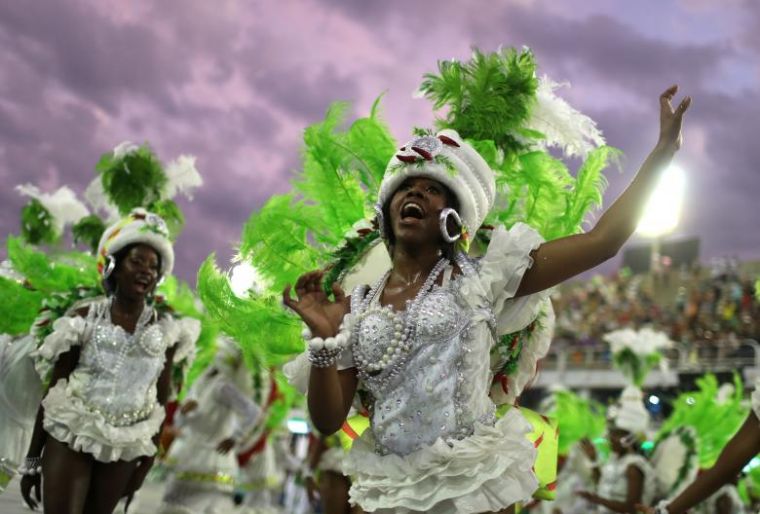Shrove Tuesday: Evangelicals must endure the suffering of Lent
Pancake Day isn't much of a thing, really. Egg, milk and flour, fried, flipped and served with sugar and lemon? Forgive me for not exactly salivating.
They do things better in New Orleans or Rio, where Shrove Tuesday is Mardi Gras, Fat Tuesday – the last day of Carnival, where the party goes wild.

Too wild, in fact, for the evangelical mayor of Rio, Marcelo Crivella, a bishop in Brazil's Universal Church of Kingdom of God. He's not a fan of the licentious behaviour associated with the event and thinks the money it costs could be much better spent, opening the carnival under protest.
But the UK's pared-down version of Fat Tuesday has the same religious roots as those exuberant affairs in less buttoned-up parts of the world. It's the day before Lent begins. Indulge yourself while you can, because tomorrow you'll be reminded you're dust and ashes. The next 40 days are about giving yourself up, not letting yourself go.
The contrast is very instructive, and points to an abiding tension in how Christians hold together joy and sorrow, celebration and mortification, Good Friday and Easter Sunday.
There are two things about this that trouble me. The first is the whole Easter thing, when the spiritual rhythm of lamenting and rejoicing comes into sharp focus. Easter Day comes after Good Friday. Resurrection comes after crucifixion.
Evangelical Christians in particular, unhampered by – or undisciplined by – any particular regard for the Christian year, have a particular issue here. I suspect Lent in many evangelical churches is hardly a thing. Anecdotally, neither is Good Friday. I hear stories of Good Friday services being omitted from the church's calendar altogether, or barely mentioning that nasty crucifixion business. The opportunity to immerse ourselves in the suffering of Christ is lost.
Why? Is it too difficult for feel-good faith? Does it require so many trigger warnings churches decide it's not worth it? Do we just not do sadness any more?
If that's true, it's horrifying. It ignores the core of the gospel story, and ignores the reality of human experience.
Missing out Good Friday mutilates Easter Day. It would probably not be feasible to restrict attendance on Sunday to people who can show they've been on Friday, but it's tempting. Christian life is not all carnival, whether it's the so-understated-you-hardly-notice of Pancake Day or the full-scale Mardi Gras.
My second worry, though, is more about that carnival. I entirely get the Rio mayor's reservations. But I do wonder whether, in their efforts to distance themselves from the unsavoury aspects of the festival, Brazilian evangelicals are throwing the baby of good clean fun out with the bathwater of licentiousness.
To a British writer, what happens in Rio is neither here nor there. They do Mardi Gras, we do Pancake Day, and a bit of batter stuck to the ceiling is hardly likely to set the heart pounding with visions of forbidden ecstasies.
But I wonder whether, in certain sections of evangelicalism at least, we're lacking that full-blooded acceptance of the created world, with its boundless varieties of experience and endless opportunities to learn, think and feel. Obviously there are things we don't do – but are we so taken up with avoiding sin that we limit our experience of goodness? Do we only let ourselves be inspired and enthused by music, art, nature or other people in the safety zone of a worship service?
The robustly pagan poet AC Swinburne wrote sorrowfully of Christ: 'Thou hast conquered, O pale Galilean; the world has grown grey from thy breath.' How can Christians, who believe in life in all its fullness, present a Christ who says 'no' to so much that makes life richer and fuller? We, of all people, should be carnival-goers. It's a big, beautiful, God-created world, and we shouldn't be afraid of it.
But that, too, is why we need Lent and Good Friday: to remind us that it's a fallen world, too, and that Christ died for it, and for us.
Carnival for secular joy, and we should enjoy it. Easter is for sacred joy, and we should enjoy that too. But Lent punctuates and critiques both, and we shouldn't pretend otherwise.
Follow Mark Woods on Twitter: @RevMarkWoods











